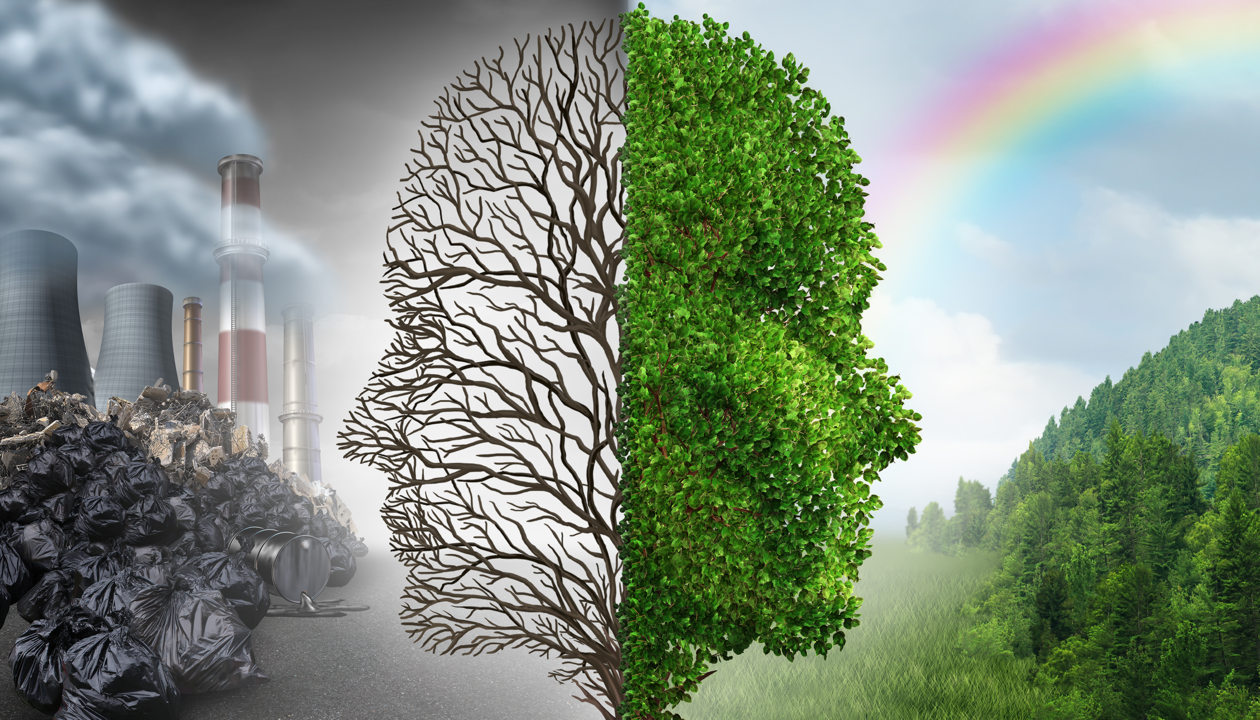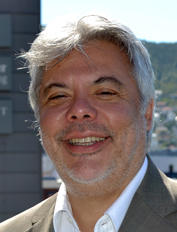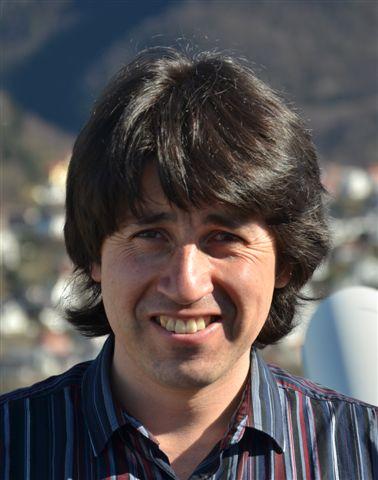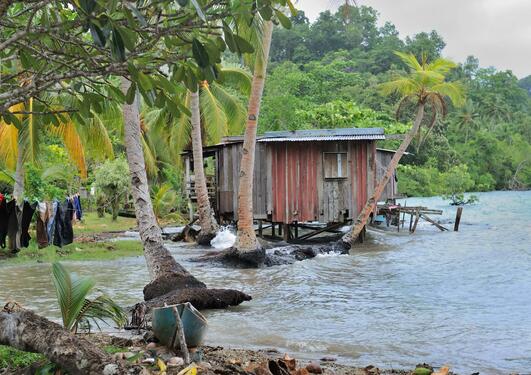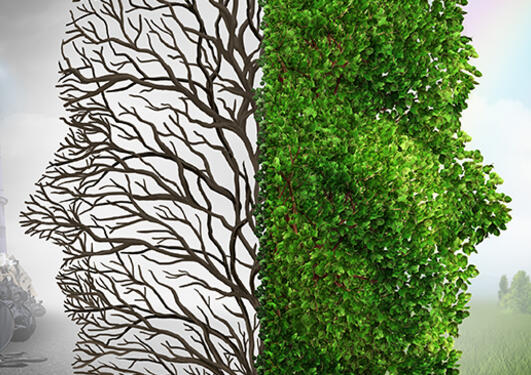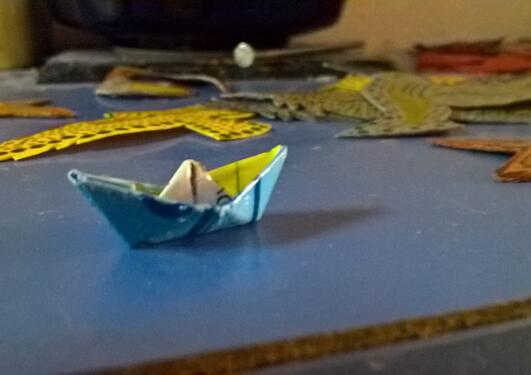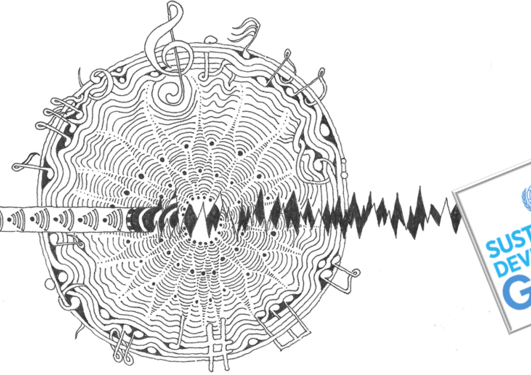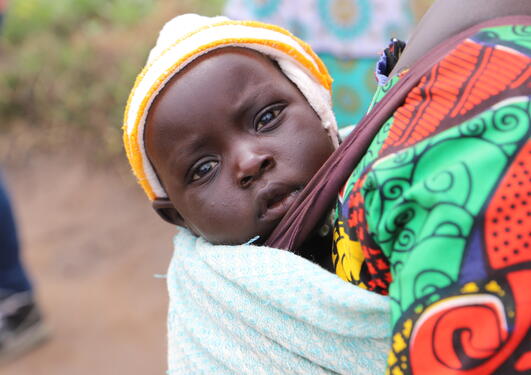Agenda 2030: Poverty, Climate Change and Sustainability
This course will analyse these challenges within an integrated scientific framework and provide candidates with tools to address these and other major global challenges.

Hovedinnhold
Course leaders
Alberto Cimadamore, Scientific Director, Comparative Research Programme on Poverty (CROP), UiB, and Noel Keenlyside, Professor, Bjerknes Centre / Geophysical Institute, UiB
Course lecturers
Oliver Mtapuri, Associate Professor, University of KwaZulu-Natal
Claudia Loggia, Senior Lecturer and Royal Society Research Fellow, University of KwaZulu-Natal
Torfinn Harding, Associate Professor, NHH Norwegina School of Economics
Erik Wilhelm Kolstad, Principal Researcher, NORCE AS
Lea Svendsen, Postdoctoral fellow, Geophysical Institute, UiB
Course description
Eradicating poverty in all its forms and dimensions has been defined by the United Nations as “the greatest global challenge and an indispensable requirement for sustainable development” in their “Agenda 2030”. In the same document, climate change was defined as the other of the great challenges of our time due to its actual and predicted effects on present and future generations and its unprecedented and disproportioned impacts on the poorest and most vulnerable in the world.
The main objective of this course is to analyse these challenges within an integrated scientific framework and to provide students with tools to address these and other major global challenges. Transdisciplinary research (TDR) and more specifically, Sustainability Science, offer the possibility to address urgent societal problems focusing on the transition to sustainability and the quest for integrated research and teaching.
The course will start by presenting Sustainability Science as an emerging field that spans academic disciplines and brings together scholarship and practice with global and local perspectives from the North and South.
The programme will include research and educational modules that will explore the theoretical and empirical links of some of the biggest challenges of our time; poverty, inequality, climate change, urbanization and sustainable development. These modules will be co-ordinated and taught by specialists in each field. A final module will contribute to the integration of knowledge and collective evaluation of the ideas and research proposals developed during the course.
Course modules
Module 1: Sustainability Science and Transdisciplinary Research (TDR)
This module will look at sustainability from a TDR point of view and address the following question: How can TDR provide a tool kit to address sustainable development and the greatest challenges of our time with a focus on the dynamic interactions between nature and society?
The module will focus on the co-production of knowledge and problem-driven science as instruments to address these challenges and feed the decision-making process.
Lectures
- Alberto Cimadamore: Introduction to the course
- Alberto Cimadamore: Sustainability, science and development: focusing on the greatest global challenges of the 21st Century
- Claudia Loggia, Oliver Mtapuri and Alberto Cimadamore: Trans-disciplinary research (TDR), participatory and mixed methods, and action research: Integrating scientific approaches & research design
- Alberto Cimadamore and Claudia Loggia: Sustainability Science as a special case of TDR. Why are they so appropriate for research on the SDGs? The way forward.
Module 2: Poverty eradication in the SDGs era
This module will take a closer look at how the MDGs and SDGs processes addressed poverty. It will critically evaluate the challenges posed by poverty and sustainable development at the beginning of the 21st Century, before looking forward to the prospects ahead. Particular attention will be paid to global poverty in an age of insecurity and inequality, identifying systemic problems and biases as obstacles to eradicating poverty and diminishing inequality. The module will also consider local effects of global changes and policies, as well as the issue of food security.
Lectures
- Oliver Mtapuri: Poverty and Inequality. Concepts and definitions. Capabilities and Human Development, Social Exclusion and Human Rights, Vulnerability and Resilience. New directions. Measurement and critical analysis.
- Oliver Mtapuri: MDGs & SDGs: Processes and Outcomes. The case of Africa (with special emphasis in Southern Africa).
- Claudia Loggia: Sustainable urbanization (SDG 11). Towards resilient cities and self-reliant communities in developing countries. The long walk to sustainable human settlements in South Africa
- Claudia Loggia: Challenges and opportunities of working within the international development space. A case study in South Africa: the ISULABANTU project. Developing a toolkit to support communities by strengthening their capacity to guide urban development themselves.
- Alberto Cimadamore: Global poverty: international discourses and realities. A critical approach. Sustainability and poverty eradication. The science-policy nexus. SDGs and integrated research. Sustainability as the dependent variable.
- Alberto Cimadamore, Claudia Loggia & Oliver Mtapuri discuss with the students research ideas & design. Each student should provide in advance very brief papers with their initial research ideas (max. 200 words).
Module 3: From climate research to climate services
This module aims to provide a basic understanding of climate change and its impact at global and regional level. It will introduce so-called Climate Services, which are being developed in order to provide actionable climate information to society. Climate Services are broadly defined as “the transformation of climate-related data — together with other relevant information — into customised products that may be of use for the society at large. Thus, climate services is a tool that can be used to meet global challenges associated with climate change and to increase the resilience of society, especially those most likely to suffer the strongest adverse effects of climate change – the poor. TDR and Sustainability Science are key components to the successful development of Climate Services.
Lectures
- Noel Keenlyside: What determines climate? An introduction to the mechanisms for climate variability and change, globally and regionally.
- Lea Svendsen: Monsoon variability and change. These tropical systems play an important role in the lives of large part of the World’s poorest.
- Noel Keenlyside: Predicting climate from 10 days to 100 years
- Erik Kolstad: The development of climate services. Co-development, co-design, and co-production.
- Torfinn Harding: Climate and macroscopic economic development. Can climate services be useful?
- Noel Keenlyside: Discussion on challenges in realising reliable climate prediction and useful climate services
Module 4: Integrating analysis & perspectives
This module will aim to integrate the knowledge contained in previous sessions. Collective discussion and evaluation of one-page research proposals prepared by the students using the ideas and readings discussed during the course will be used to encourage interaction.
The students will present their research ideas and plans. General discussions on how to use course learnings in their research design will be coordinated by the lecturers indicated below.
Lectures
- Noel Keenlyside and Alberto Cimadamore: Integrating climate, poverty and development research. A concrete experience in the area of climate services: CS4AWA. Lessons & possibilities in future integrated research using Sustainability Science & TDR approaches
- Noel Keenlyside, Oliver Mtapuri, Claudia Loggia and Alberto Cimadamore: Students’ presentations of research ideas & design. General discussion coordinated by lecturers
- Noel Keenlyside, Oliver Mtapuri, Claudia Loggia and Alberto Cimadamore: General conclusions. Wrapping-up and plan for the future (i.e., exams & evaluation of final papers)
Reading list
Asara, V. et al. (2015) “Socially sustainable degrowth as a social-ecological transformation: repoliticizing sustainability”, Sustainability Science 10: 375-384
Bettencourt, L.M.A. and J. Kaur (2011) ‘The Structure and Evolution of Sustainability Science’, Santa Fe Institute Working Paper 2011-02-004. 6pp
Cimadamore, A.D. (2016) Global justice, international relations and the Sustainable Development Goals’ quest for poverty eradication, Journal of International and Comparative Social Policy, 32:2, 131-148. https://www.tandfonline.com/doi/full/10.1080/21699763.2016.1198267
Clark, W.C. and N. M. Dickson (2003) ‘Sustainability Science: The emerging research program’ in PNAS, Vol. 100, No. 14, p. 8059–8061. 3pp
Hewitt, C., Mason, S., & Walland, D. (2012). The global framework for climate services. Nature Climate Change, 2(12), 831.
Hirsch Hadorn, G. et al., (2008) ‘The Emergence of Transdisciplinarity as a Form of Research’ in Hirsch Hadorn, G. et al. (eds) Handbook of Transdisciplinary Research. New York: Springer. 21pp
IPCC (2018) Global Warming of 1.5 C. Summary for Policymakers. Switzerland: IPCC (https://www.ipcc.ch/sr15/chapter/spm/) 26pp
IPCC (2013) ‘Summary for Policymakers’ in Climate Change 2013: The Physical Science Basis. Contribution of Working Group I to the Fifth Assessment Report of the Intergovernmental Panel on Climate Change [Stocker, T.F., et al. Eds.). Cambridge UK and New York, USA: Cambridge University Press. Sections A, B (excluding B.5), C, D, E (excluding E.3, E.7) 20pp
Kushnir, Y. et al. (2019) “Towards operational predictions of the near-term climate”, Nature Climate Change, 9, 94-101.
Lang, D. J. et al. (2017) «Bridging divides in sustainability science», Sustainability Science 12 : 875-879
Matson, P. et al. (2016) Pursuing sustainability. A guide to the science and practice”. Princeton and Oxford: Princeton University Press. Chapter 1 “Pursuing sustainability: an introduction”; Ch. 5 “Linking knowledge with action”; Ch. 6 “Next steps: contributing to a sustainability transition”.
Ostrom, E. (1996) “Crossing the Great Divide: Coproduction, synergy, and development”. World Development 24(6): 1073–1087.
Pohl, C. et al. (2008) ‘Core Terms in Transdisciplinary Research’ in Hirsch Hadorn, G. et.al. (eds) Handbook of Transdisciplinary Research. New York: Springer. 6pp
Saito, O. et al. (2017) “Sustainability science and implementing the sustainable development goals”, Sustainability Science SF, 12: 907 https://link.springer.com/article/10.1007/s11625-017-0486-5
Street, R., et al. (2015). A European research and innovation roadmap for climate services. European Commission, 702151. ISBN: 978-92-79-44341-1. https://doi.org/10.2777/702151.
The Housing Development Agency (2015) Participatory Action Planning for Informal Settlement Upgrading. Cape Town, ZA: The HAD. http://thehda.co.za/pdf/uploads/multimedia/Participatory_Action_Planning_for_Informal_Settlement_Upgrad.pdf
United Nations (2018) The Sustainable Development Goals Report. New York: https://unstats.un.org/sdgs/files/report/2018/TheSustainableDevelopmentGoalsReport2018-EN.pdf Pages 2-17 = 16pp
United Nations (2016) The Sustainable Development Goals Report. New York:
http://unstats.un.org/sdgs/report/2016/The%20Sustainable%20Development%20Goals%20Report%202016.pdf Pages 12-15; 36-37; 50-51 = 8pp
United Nations General Assembly (2015) ‘Transforming our world: the 2030 Agenda for Sustainable Development’, Res. A/70/L.1, 25 September. New York:
http://www.un.org/ga/search/view_doc.asp?symbol=A/RES/70/1&Lang=E 35pp
United Nations (2017) The New Urban Agenda. New York: Available at: http://habitat3.org/wp-content/uploads/New-Urban-Agenda-GA-Adopted-68th-Plenary-N1646655-E.pdf
UN-Habitat (2013). State of the World's cities 2012/2013 e prosperity of cities. New York: Routledge. https://sustainabledevelopment.un.org/content/documents/745habitat.pdf
UN-Habitat (2014). The State of African Cities. Re-imagining sustainable urban transitions. United Nations Human Settlements Programme, UN-Habitat, Nairobi, Kenya. https://unhabitat.org/books/state-of-african-cities-2014-re-imagining-sustainable-urban-transitions/
UN-Habitat (2015). “Informal Settlements”. Habitat III Issue paper 22. New York: UN Habitat. https://unhabitat.org/habitat-iii-issue-papers-22-informal-settlements/
Vaughan, C. and Dessai, S. (2014) “Climate services for society: origins, institutional arrangements, and design elements for an evaluation framework”. WIREs Clim Change, 5: 587–603. doi:10.1002/wcc.290 17pp
Watson, V. (2014) “Co-production and collaboration in planning – The difference”. Planning Theory & Practice,15 (1), 62–76.
Wiesmann, U. et al. (2008) ‘Enhancing Transdisciplinary Research: A Synthesis in Fifteen Propositions’ in Hirsch Hadorn, G. et al. (eds) Handbook of Transdisciplinary Research. New York: Springer. 9pp
